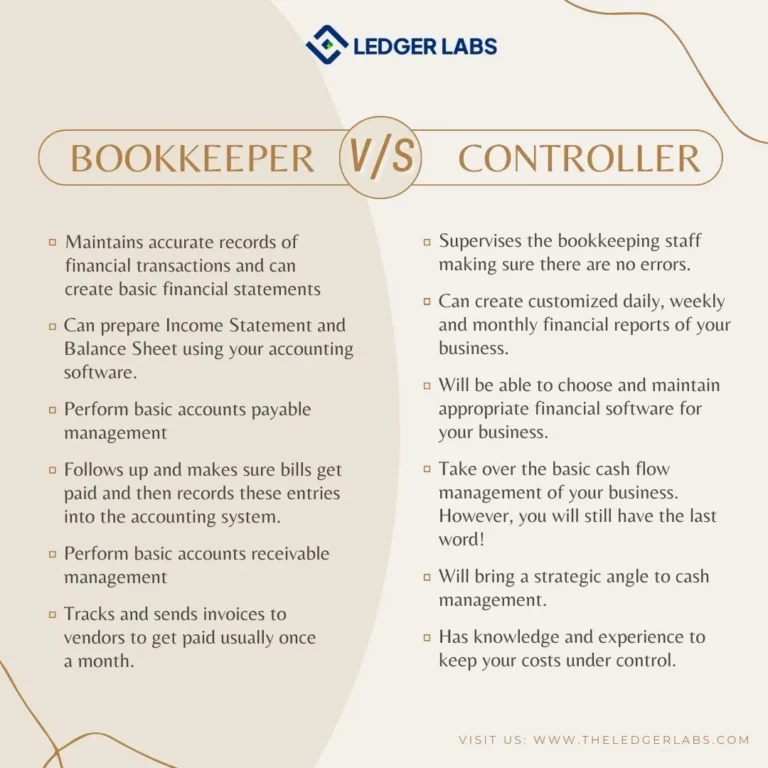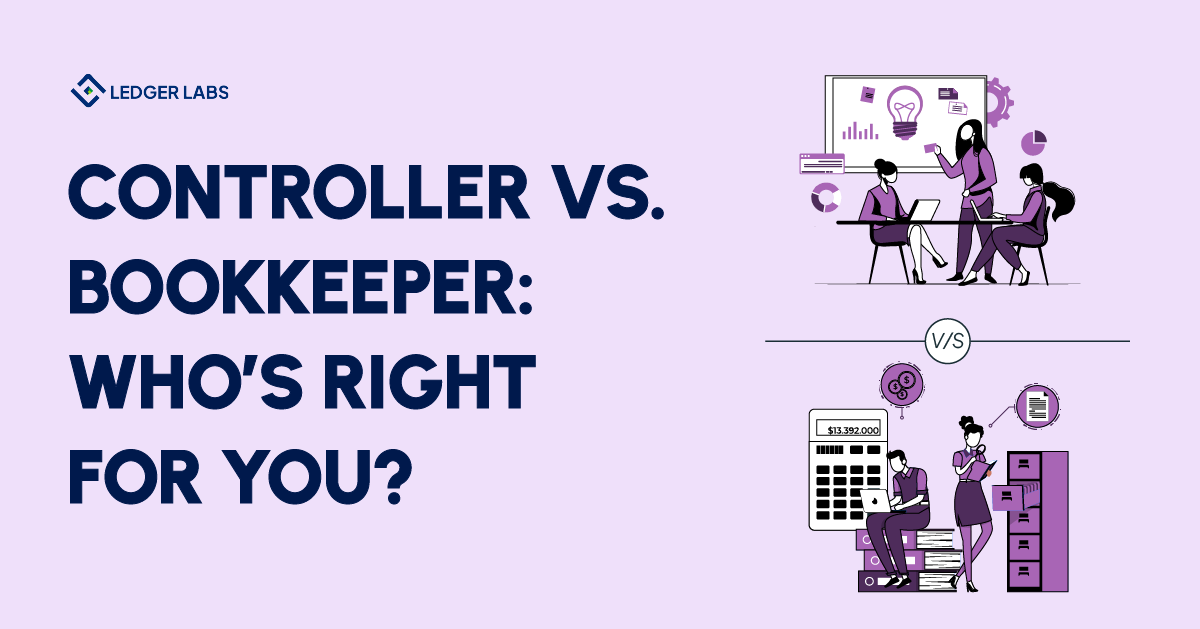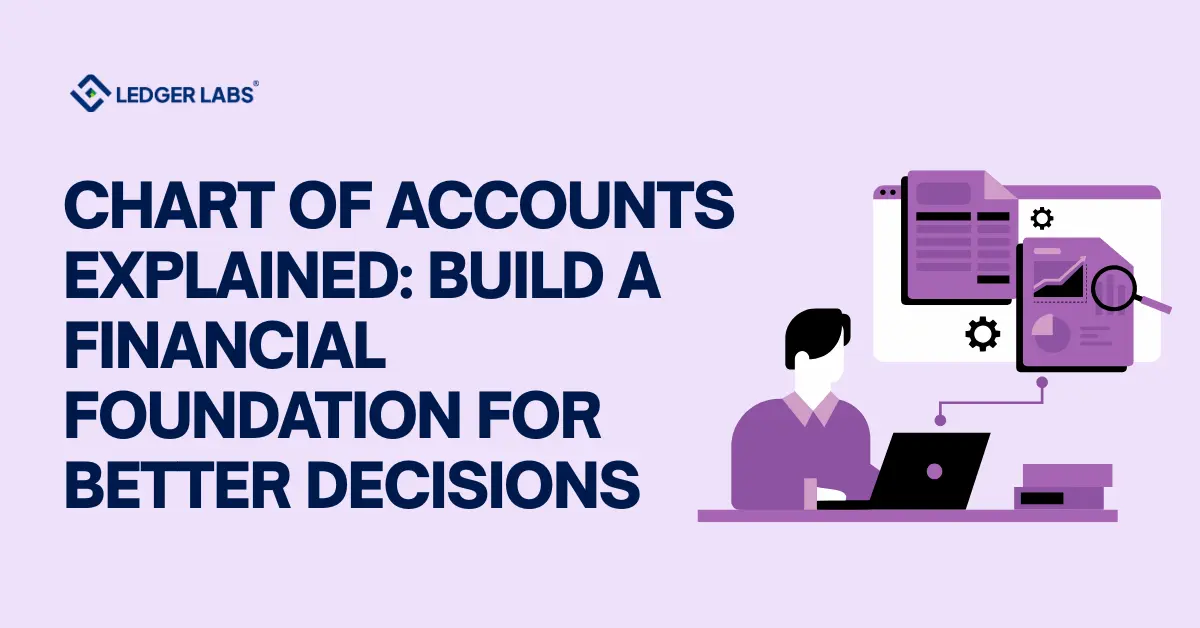1. Controllers oversee financial strategy, budgeting, and compliance, while bookkeepers handle transactional accuracy and data entry, creating a foundation for effective financial planning. Both roles are essential but differ significantly in scope.
2. Controllers require advanced certifications and manage financial forecasting, whereas bookkeepers focus on daily accounting tasks like categorizing transactions, ensuring accuracy, and generating basic financial reports.
3. Bookkeepers maintain detailed records to support operations, while controllers use this data to make higher-level financial decisions, optimize strategies, and align company objectives with regulatory requirements.
Financial personnel like bookkeepers, accountants, and controllers are quite important for a business.
Whether your business is large-scale, medium-scale, or even small-scale, with the assistance of such helping personnel, you get the ease of managing the daily operations of the business.
Additionally, they also help you understand the performance of the business during any required period. Another benefit of such personnel is that you get a streamlined view of your company’s data and transactions. You can use the same information to undergo advanced analysis and devise a plan of action for the future.
However, when it comes to hiring such personnel, businesses get confused and at times consider the misconception that the jobs of bookkeepers, accountants, and controllers are the same.
The reality is miles away from this misconception.
With the help of this article, we will explain how a controller and bookkeeper are different from each other.
Who is a Bookkeeper?
Almost all kinds of businesses have and should have a bookkeeper. Just like the name, a bookkeeper is an individual connected to a business whose main job is to become the handler of all the tasks related to entering the transactions and other data in the books of accounts or QuickBooks.
Additionally, the same individual is also concerned with recording and payments of bills, creating invoices for customers, and other daily or regular tasks. Whether the scale of operations in your business is narrow (limited) or broad (unlimited), both of these businesses need a bookkeeper who can easily record all the transactions and operations as per your requirements.
Where Do Bookkeepers Work (The Detailed Job Description)
If we have a look at the works of a controller vs bookkeeper, then the former has a simpler set of activities to control. A bookkeeper is associated with the basic tasks of recording the financial activities or operations undergoing in the business. This includes the task of recording the financial transactions generated because of the activities of the business.
The job of a bookkeeper is not simple per se but has limited responsibility and liability as compared to that of a controller if we talk about controller vs bookkeeper specifically. The training and positioning of a bookkeeper are quite straightforward and simple. The bookkeeper is trained to be attentive to different details and present the data in a specific format.
Additionally, the bookkeeper should be able to retain the actual data from the transactions or operations as levied, received, or paid.
All the tasks related to the financial bookkeeping of the business and its transactions are the sole responsibility of a bookkeeper. Generally, bookkeeper(s) is require to be hire in all types of businesses, whether small or medium-scale. For the same, he is supposed to record the accounts receivable and the accounts payable accounts of the business. The bookkeeper is not expected to make a mistake. Any type of mistake can easily affect the overall working and management of the business.
Hence, a bookkeeper should be utter and accurate in his tasks. If the bookkeeper skips the information like the payments from any client or customer. This can result in the understatement of the accounts, and hence the investors may get demotivate to invest in the business. He needs to be precise and thorough.
Controller Or Bookkeeper? What’s Better For Your Business? Get The Answer Here
Who is a Controller?
If we talk about controllers, then a controller is an individual that surpasses the rank of a bookkeeper. The tasks of a controller include:
- Undertake all the responsibilities or manage the bookkeeper(s)
- Develop the reports from the data collected by the bookkeeper(s) as per the requirements of the business and managers. (Annual, monthly, weekly, or daily.)
- Manage all the financial tools and software present in the business.
- Manage the cash flow
- Perform all the tasks associated with the bookkeeping services (in a small-scale business if a bookkeeper is not available.)
So, this is how the definition of the two can easily differentiate in controller vs bookkeeper. Now let’s have a look at where do bookkeepers work and what their job is for a better understanding.
What Does a Controller Do? (The Detailed Job Description)
If you have decided or are thinking about hiring a controller for a business. This means that the scale of your business is increasing. When there are one or more bookkeepers present in an organization, then you may need a controller to supervise them. The need for supervision appears as the tasks on the plate of a bookkeeper are getting out of his hands. Hence, important tasks like creating a report, and others of the same intensity are transfer to the controller. When talking about controller vs bookkeeper, the task of the former is often summarized as the management of the cash flow. However, as shown in the previous section, the forte of the controller is varied.
At times, a business may even hire a controller for a few tasks. In such a case, the controller is also present to take over the job of the bookkeeper if the controller is empty-hand in the organization during a specific period(s). The controller is directly answerable to the upper-level management of the business. Hence, he may be directed or required to create reports from the bookkeeping data for different intervals.

Do a Business Need to Hire Both a Bookkeeper and a Controller?
Yes, at times, a business may even need to hire both a bookkeeper and a controller. However, this situation generally appears when the company is growing swiftly and its number or scale of operations is increasing quickly. Additionally, a company may also decide to hire both individuals to remove the differences between controller vs bookkeeper. And divide the task between the two as suited. If your business needs someone to do the basic job of bookkeeping only, then you can save a lot by not hiring a controller. The decision of hiring the person depends upon the requirements and decisions of the business only.
Controller vs Bookkeeper: I am Still Confused
If you think that the above sections were not enough for you to understand the difference between a controller vs bookkeeper. Then you can contact the smart executives at The Ledger Labs for further clarification. These executives will inform you everything about where do bookkeepers work and what does a controller do. Additionally, Ledger Labs employs a smart and well-experienced team of both controllers and bookkeepers for you. You can allow us to take care of all your accounting and recording requirements as necessary by outsourcing the jobs to these professionals at economical costs.
Contact us now to talk to our accounting and bookkeeping experts.












